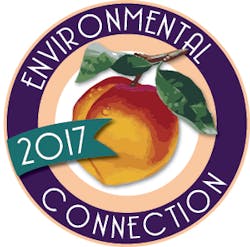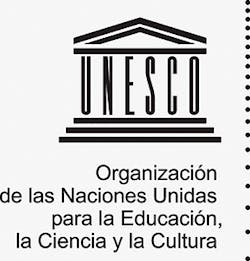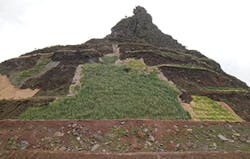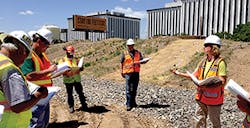IECA News
Environmental Connection 2017 Ready for Atlanta?
Save the date for EC17!
Environmental Connection 2017 is coming soon and IECA encourages all industry professionals to start making plans to attend the world’s largest soil and water event. EC17 will be held February 21–24, 2017, at the Cobb Galleria Centre in Atlanta, Georgia. Prepare to learn from a vast round-up of innovative technical sessions, including these hot topics:
Hotel Accommodations
IECA has arranged for special pricing at our three host hotels;
A big thank you to this year’s conference sponsors!
Free Webinars for IECA Members
Did you know that our members get up to eight free webinars a year? All Professional Plus members receive six complimentary Vendor Webinars PLUS two IECA Webinars. All members receive six complimentary Vendor Webinars and a discount of $15 on all IECA Webinars.
What are IECA Webinars?
Webinars are an effective way to educate your staff while further reducing the cost of training by eliminating instructor travel expenses. All IECA webinars are peer-reviewed to be sure you’re getting the best education around. To learn more or to register for an upcoming webinar, visit www.ieca.org/webinars.
Upcoming Webinars
Underground Storage: More Than Hiding Stormwater—sponsored by StormTank
Instructor: Jason Bailey, P.E.
Date: September 7, 12:00 PM Central Time
PDH: One certificate is issued (to the registered participant) per paid registration.
Level: Basic
Pricing: FREE for IECA members, $15 for non-members
Learning Objectives:
- Increase knowledge of underground storage benefits
- Increase knowledge about applications of storage products
- Increase knowledge on maintenance of underground storage
Designing LID Systems: What do you need to know and why
Instructor: Steve Trinkaus, P.E.
Date: September 21, 12:00 PM Central Time
PDH: One certificate is issued (to the registered participant) per paid registration.
Level: Intermediate
Pricing: $50 for members, $65 for non-members
Learning Objectives:
- Understand the type and scope of site investigations necessary for the proper design of LID systems
- Learn how to size LID infiltration systems handle more rainfall than the water quality storm event
- Understand how the construction sequence can affect the functionality of the LID treatment system
Ecological Monitoring for Construction: Combining Qualitative and
Quantitative Methods
Instructor: Kim Logan, P.Bio (AB), P.Geo (Limited), Cert. Rest. Ecol., CISEC
Date: September 28, 12:00 PM Central Time
PDH: One certificate is issued (to the registered participant) per paid registration.
Level: Intermediate
Pricing: $50 for members, $65 for non-members
Learning Objectives:
- Steps to create an ecological monitoring plan for construction projects
- Learn qualitative and quantitative methods and how they can be used together for best results
- Understand what is suitable criteria and timelines for wetland ecosystems
Five Innovative Ways to Upgrade your Sediment Control Plan with DuraWattle—Sponsored by Heavyweight Sediment Control Solutions
Instructor: Kristin Parkinson
Date: October 5, 12:00 PM Central Time
PDH: One certificate is issued (to the registered participant) per paid registration.
Level: Basic
Pricing: FREE for IECA members, $15 for non-members
Learning Objectives:
- See examples of innovative sediment control plans using the DuraWattle as a synthetic barrier
- Discover where some traditional sediment control BMPs often fail
- Learn about some benefits of using a reusable sediment barrier in your SWPPP
- See an example of augmenting your MS4 plan with a durable, temporary sediment barrier
Large-Scale Performance Enhancement Study of Sediment Basin Technology
Instructor: Mike Perez
Date: October 19, 12:00 PM Central Time
PDH: One certificate is issued (to the registered participant) per paid registration.
Level: Basic
Pricing: $50 for members, $65 for non-members
Learning Objectives:
- Gain insight on sediment basin needs, practices, functions, and performance
- Learn about large-scale sediment basin testing and research findings
- Attain an overview of the Auburn University Erosion and Sediment Control Testing Facility (AU-ESCTF) experimental
The International Erosion Control Association Region One Board of Directors recently approved a cooperation agreement with UNESCO Bureau of Sciences for Latin America and the Caribbean through its International Hydrological Programme (UNESCO IHP-LAC). Recognizing a common interest in fostering scientific and technical cooperation for enhancing capacities to better manage erosion control, sediment transport, and sedimentation processes, both organizations chose to pursue this partnership.
Region One IECA is indebted to Dr. Pablo Garcia Chevesich, both a UNESCO project lead and an IECA member, who recognized the complementary missions of both organizations and brought this opportunity forward. It is envisioned that IECA’s Ibero-American Chapter members will play a significant role in implementing this agreement due to common language and culture in Latin America and the Caribbean. The first project under discussion is in Cuba. Stay tuned for future updates on the agreement, as events develop.
by photographer Paula Pereira.
IECA’s Annual Photo Contest Starts October 1st
Looking for an opportunity to gain visibility and share your accomplishments with the erosion and sediment control community? Then get your camera ready for IECA’s Annual Photo Contest! The contest is FREE—so all you need to do is send us your photos.
Photos will be judged in the following three categories: Impacts of Erosion and Sediment Control, Before and After, and Technology in Action. Entries will be displayed on our website and showcased (in an enlarged format) at IECA’s annual conference and expo, Environmental Connection 2017. Preliminary voting will take place on IECA’s Facebook page by liking or commenting on your favorite images.
Final voting of the top six in each of the three categories will take place at Environmental Connection 2017 in Atlanta, Georgia. Prize ribbons will be awarded to the first, second and third place winners of each category. The photo with the most votes in each category (first place) will receive $50 in cash. The winner must be present to obtain their prize.
If the first place winner is not present at the time of the award (announced in the Environmental Connection 2017 conference program), the prize will be given to the second place winner if present. If the second place winner is not present, the third place winner may obtain the prize if present. If they are not present, the cash will be donated to IECA’s foundation, the SOIL Fund.
Rules and Guidelines
- Entries are due on or beforeDecember 31, 2016.
- Photo resolution must be 300 dpi or higher. The higher the resolution, the better your image will appear.
- Photos will be accepted only in .jpg, .tif, .gif or bitmap formats.
- You must include a brief description for each submittal.See the entry form for details.
- Entries will be screened for eligibility. IECA has the right of refusal for any or no cause.
- Photos may only be submitted for entry to the Annual Photo Contest once. Re-entries will be discarded.
- Individual image files may not exceed 10 MB in size.
- Photos must be submittedelectronically to www.ieca.org/photosubmit.
Contest Tip: We are looking for high-quality photos. This means your photo(s) should be sharp and well-focused with proper lighting. Photos that are out of focus, too dark, too light, grainy, or otherwise unclear will not be competitive.
The 2017 Photo Contest is Sponsored By
Jennifer has been in the stormwater management and water quality industry for 14 years, and a member of IECA since 2004. She holds an M.S. in
Hydrology/Water Resource Management from the University of Georgia and a B.S. in Ecological Biology from the University of Colorado Boulder. She currently works for Wright Water Engineers in Denver, Colorado as a Project Manager/Water Resource Specialist. She tries to stay active with the Mountain States Chapter (MSC) of IECA where for years she served as the Chapter Advisory Committee liaison between the MSC and IECA and for a shorter time period as the vice-president. Jennifer recently began working as a stormwater trainer for stormwater management on transportation projects and capital improvement projects. Over the last three years, she has trained over 2,000 people, a task that she states has been a very rewarding experience.
Q: Why are you an IECA member?
A: I feel that IECA has offered me the opportunity to network with other members of my industry. Many of the relationships I have developed through IECA have provided great resources that I can count on as I move through challenges on my projects. I have been very active with the organization both on a local chapter level and a national level.
Q: Can you tell us a little bit about yourself?
A: After receiving my undergraduate degree from CU, I worked as an intern for the Student Conservation Association (SCA) in the panhandle of Florida where I became very interested in coastal wetlands and oceanography. I was offered a full-time positon with the Gulf Coast Research Laboratories, where I was involved in studying invertebrates that lived in the surf zone and bayous. I began a graduate program in Oceanography at the John Stennis Space Center on the coast of Mississippi. The space center is affiliated with the University of Southern Mississippi.
As much as I was interested in Oceanography, after a year I decided to put my studies on hold and moved back to Colorado where I worked in a water quality laboratory in Steamboat Springs. This inspired me to go back to graduate school in water resources/hydrology at University of Georgia in the School of Forestry and Natural Resources where I obtained a research assistantship. I was very active in a local watershed group and found my niche in studying water systems. I have brought that love of water quality and hydrology to the construction world where I have been primarily working for the last 14 years.
Q: How did you get started in the industry?
A: I really got started by working as a laboratory technician in a water quality laboratory. My introduction into construction stormwater management started by working for two years on a large highway expansion project and light rail project in Denver (TREX Project).
Q: Why are you in the industry?
A: I really enjoy the challenges that stormwater management offers both in construction (my primary work area) and in long-term management and water quality (post-construction).










